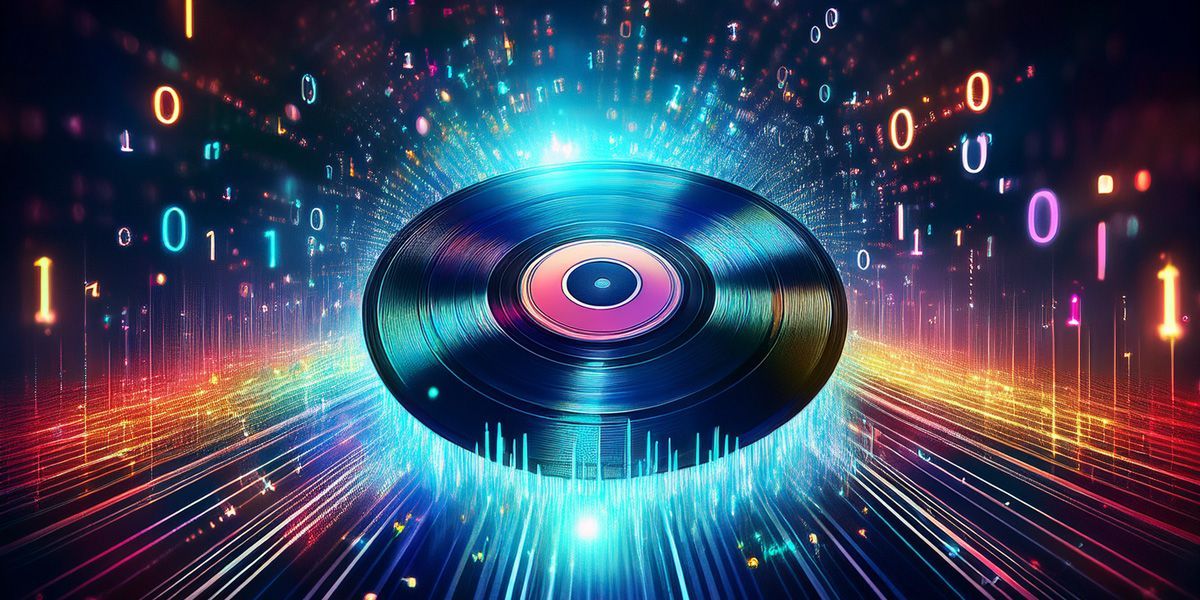AUDIO ORIGAMI BLOG

WHY ANALOGUE?
In a world dominated by screens and digital interactions, we argue that analogue music provides a richer, more fulfilling engagement for humans.
Serious listeners are increasingly returning to vinyl, a phenomenon driven by a blend of genuine advantages and perhaps a touch of nostalgic trendiness. In this article, we'll delve into three key aspects that explain this resurgence: sound quality, the tactile experience of handling records, and the inherent human desire to curate collections.
It's worth noting that as manufacturers of tonearms, we might be perceived as having an analog bias. However, our passion extends beyond our products; we are first and foremost fanatical audiophiles. We live and breathe music, constantly seeking ways to enhance its playback, regardless of the format.
Sound Quality
The debate over whether analog or digital formats offer superior sound quality has been ongoing for years. This discussion often boils down to two main points: the original recording method (digital vs. analog) and the presence of surface noise on vinyl.
We've previously addressed how to significantly reduce record surface noise in this article. For a recording to sound good on either format, a good mastering is crucial, but we don't buy the argument that if an album was digitally recorded that it sounds better played back on digital components. Many excellent-sounding records were recorded digitally and, in our experience, they still tend to sound better on vinyl.
We find that vinyl delivers more ambience, atmosphere, and a more believable sound than digital. We have our own theories as to why this is the case, and we believe it's unrelated to the recording process itself. While no one has definitively explained this phenomenon, it's possible the characteristics of the vinyl medium itself play a role.
There's no denying that digital playback is "cleaner," free from surface noise, and typically boasts higher dynamics than vinyl, but it often lacks believability and can sound lifeless and sterile. However, we do recognise that recent advancements in digital music playback technology have narrowed the gap with analogue, and this trend is likely to continue.
The "which sounds better" argument will probably rage on forever, but the following benefits of analogue will never be rivalled by digital music...
Tactility
Although society itself is becoming more digital every day, humans are still entirely analogue. Our senses are analogue. Denying yourself the ability to hold a record in your hands and see and feel the album cover is akin to eating a juicy steak with a clothes peg clipped to your nose. You'll taste a little, but you're missing out on so much.
The act of finding a record on your shelf, carefully removing it from its sleeve, and placing it on the platter significantly enhances your sense of musical satisfaction. Holding the sleeve in your hand, appreciating the artwork, or reading the lyrics while you listen are all integral parts of the analog music experience.
While digital platforms like Roon offer some similar functionalities, they don't come close to the excitement of dropping a needle onto a specific track, hearing that subtle rumble as the stylus glides through the track gap, and then the immediate thrill of the intro notes.
Does this sound like we're romanticising vinyl? Absolutely. After all, imagine romance without touch!
Collecting
Humans are inherent collectors, driven by a complex interplay of psychological, social, and evolutionary factors – a legacy of our hunter-gatherer past.
The quest for the perfect copy of a record, satisfies our inbuilt hunting instinct and also offers a delightful sub-mission, providing a tangible focus for our energies.
We also form profound emotional attachments to our collected items, deriving comfort and pleasure from these acquired objects. While this might appear materialistic, it's deeply embedded in our evolutionary blueprint.
Crucially, when you purchase a record, it becomes unequivocally yours. This stands in stark contrast to music streaming services, where you merely subscribe to access music that is never truly your property. The act of possessing something acquired with your own hard-earned money fosters a deeper appreciation – that's an undeniable fact. Conversely, adding a digital album to an on-screen library holds little intrinsic value; it's, quite literally, a worthless digital bookmark.
Furthermore, records, when properly cared for, generally appreciate in value and can even serve as a viable, tax-free investment. Ask yourself what the £15 you pay monthly for your streaming service will be worth in a decade?
While record collecting might occasionally be branded as "geeky," let's be candid: nothing is more "geeky" than amassing thousands of digital albums in a library stored on the cloud. The virtual storage of virtual albums within a virtual library is, by its very definition, virtual! It has no tangible existence in the physical world.
Collecting records is, quite simply, cool.

